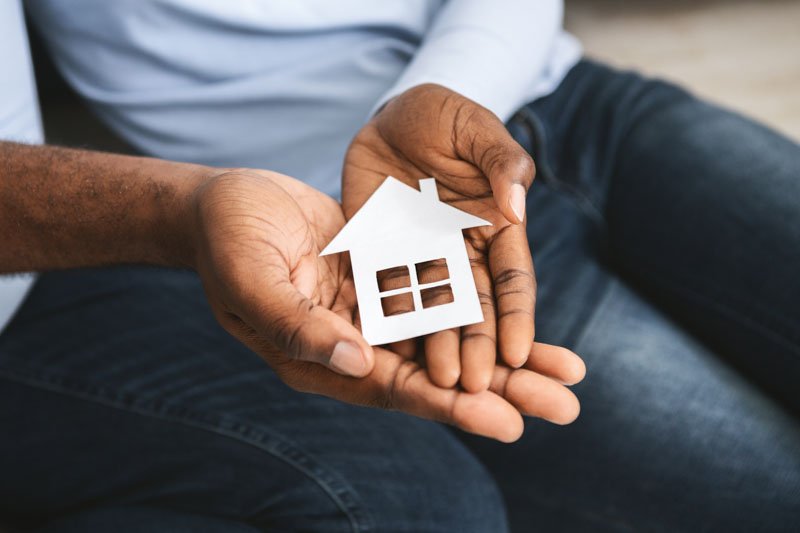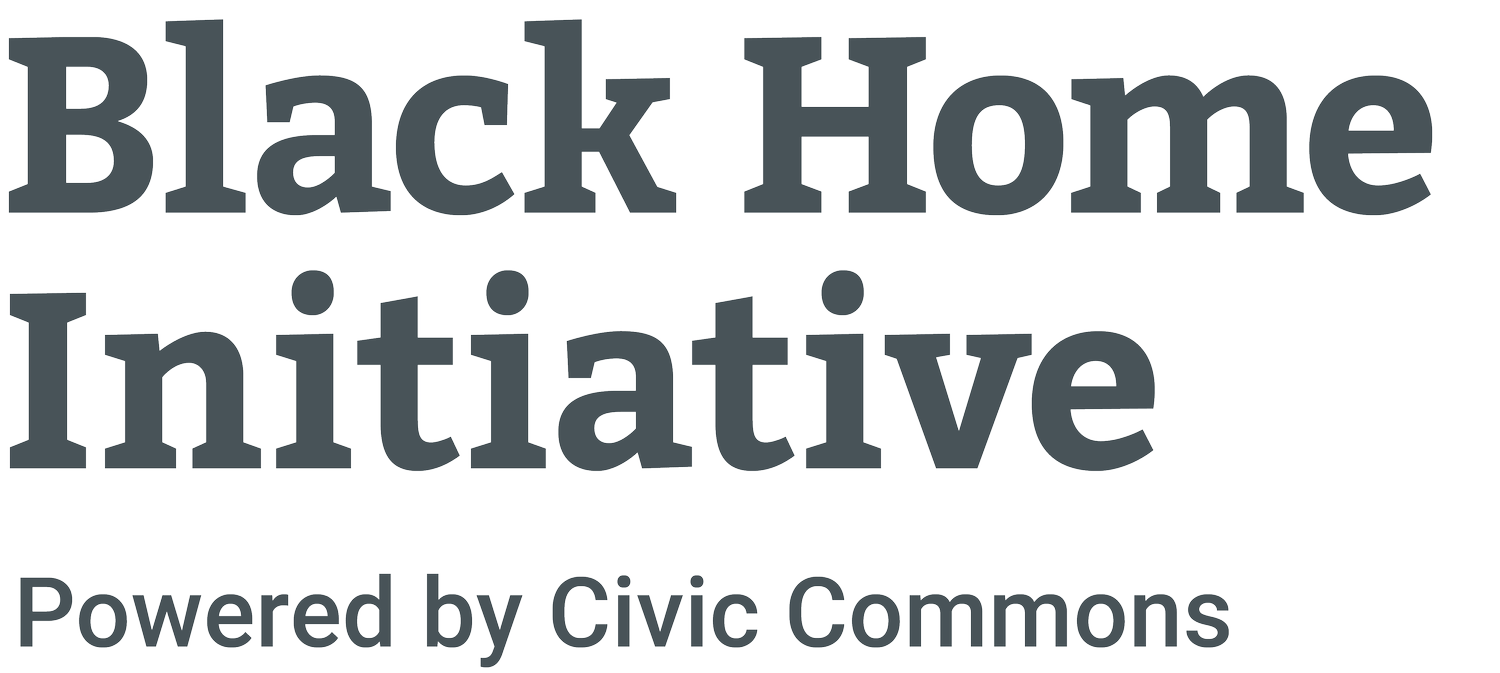
Opportunities
Black Homeownership Legacy Fund (BHLF)
CONGRATULATIONS TO THE ReCIPIENTS OF THE 2023 Black Homeownership Legacy Fund:
Tacoma Urban League
Nehemiah Initiative Seattle
African American Leadership Forum
Pierce County Community Land Trust
Freedom Project
Please check back later this year for the 2024 BHLF application.
-
The Black Homeownership Legacy Fund (BHLF) is a capacity-building fund housed at the Greater Tacoma Community Foundation. The fund was established to provide grants to nonprofit organizations that support homeownership activities benefiting low- and moderate-income Black households in South Seattle, South King County, and North Pierce County. Successful applicants will be able to demonstrate how the grant funds will increase homeownership units and/or support future Black homeowners. BHLF was designed to create access to capacity-building funds for community-based nonprofit organizations who are BIPOC-led and working to make homeownership more accessible to Black households. It puts into practice the funding principles established by Black Home Initiative (BHI), a tri-sector regional partner network.
-
BHLF offers grant funding specifically for capacity-building and technical assistance. These funds are not intended to be used to cover day-to-day existing operations. Instead, the intention and expectation of these awards is to increase current performance on outcomes associated with homeownership among Black households with low-to-moderate incomes. Funding for consultants or additional FTE will be considered; however, FTE should be limited to the percentage of staff time dedicated to activities that will advance the BHI mission. Ineligible uses include, but are not limited to, sponsorship of events, travel to and fees for conferences, and the crafting or advancing of public policy. All funds must be spent within one year of receiving funding.
-
Grants will be awarded as outlined in the BHI Network Partner Principles (please see the BHI Network Partner Funding Principles above). Eligible nonprofit organizations will:
demonstrate commitment to the BHI shared priority.
be embedded in community.
have a proven record of uplifting Black households.
carry out the work of identifying and supporting Black homebuyers and/or developers of affordable ownership homes (to produce more homes for purchase).
-
The primary purpose of Black Home Initiative (BHI) is to increase the number of BIPOC households who successfully secure homeownership. The ultimate impact we aspire to is the reduction of inequity and an increase in inter-generational household wealth. Our initial emphasis, and our shared priority, is on Black households; within five years, the goal is to make the opportunity to own a home, and the potential benefits of that asset, available to 1,500 new low- and moderate-income Black homeowners in South Seattle, South King County (starting south of Seattle), and North Pierce County (which includes Tacoma, Fife, Lakewood, Parkland, and surrounding areas). The initiative will concurrently focus on the essential work of clearly defining — and transforming — the systems that have impeded access to homeownership for Black households in our geographic focus area.
-
The racial wealth gap in our area is substantial. This gap is a direct consequence of barriers erected by historical structural racism and by current institutional policies and practices that perpetuate, and build on, that history of injustice. This persistently discriminatory framework suppresses both the economic vitality of communities and the generational wealth-building of households of color. (1) In Washington state, approximately 42% of Black households and approximately 14% of white households have zero net worth. (2) This disparity is influenced by the stark statewide difference in Black-white homeownership rates. While rising costs have made purchasing a home a challenge for many people in our state and region, the goal is even less attainable for Black households: recent data indicate a 26% rate of homeownership among Black households in Seattle, roughly half the 51% rate among white households, and a 35% rate among Black households in Tacoma, compared to a 64% rate among white households. (3)
References:
(1) Logani, I. (2022). The racial wealth gap is the housing gap. State of Washington, Office of Lieutenant Governor. Retrieved January 7, 2023 from https://www.ltgov.wa.gov/2021-housing-report
(2) Challenge Seattle and Boston Consulting Group (BCG). (2023, January). The conspicuous crisis: Addressing housing affordability in Washington. Retrieved January 7, 2023 from https://www.challengeseattle.com
(3)Tacoma data: U.S. Census Bureau. (n.d.) American community survey (ACS) 5-year estimates public use microdata sample (PUMS), 2015-2019 [Data set]. U.S. Department of Commerce. Accessed at https://www.census.gov/programs-surveys/acs/microdata/documentation/2019.html Seattle data: The Racial Wealth Divide in Seattle (2021 scorecard data). Accessed at https://www.prosperitynow.org
-
Because we are stronger together. Making BHI’s shared priority a reality requires change in many aspects of several intersecting systems. This involves the biggest-picture principles, the most detailed metrics, and the large, complex web of policies and practices in between. No single organization, no matter how determined or well-resourced, can do it alone. This shared priority needs an approach that breaks with traditional ways of approaching affordable homeownership. Breakthrough success will only come from doing three things:
Bringing together and unifying those who make decisions for, and carry out the work of, many relevant sectors.
Elevating the voices of community members impacted by that work.
Combining the depth and breadth of their diverse experience, expertise, tools, resources, and commitment.
BHI is a participant in Connecting Capital and Community, a three-year effort by the Center for Community Investment (CCI) to address housing inequity in five U.S. markets. In doing so, BHI deploys CCI’s Capital Absorption Framework.
-
Community investment funding for affordable housing in the United States is a complex system. It often brings together public and private funds, and is generally more robust for development of multi-family rental affordable housing. In addition, many existing funding programs have “gating” barriers that make access difficult for community-based organizations/developers who are BIPOC-owned and led.
BHI’s primary goal is for the economic benefit of funds marshaled for this work to be gained by Black-led developers and Black-led nonprofit organizations.
Moreover, the benefit of the resources marshaled should, as much as possible, directly support LMI Black homebuyers.
Regarding the creation of additional homeownership homes: BHI will prioritize Black- owned/Black-led developers and Black-led community-based organizations to lead the development work and, when necessary, consider joint ventures with appropriate community-facing/community-serving organizations.
Regarding the identification and support of Black homebuyers: BHI prioritizes the funding of Black-led nonprofit organizations who specialize in doing outreach and in providing pre-purchase counseling and support. When necessary, funding may also be provided to community-serving organizations committed to the BHI shared priority and principles.
BHI will prioritize intermediaries to disseminate funds based on their commitment to the BHI shared priority and principles. Fees should be aligned with the goal of maximizing the funding levels passing through to community-based organizations and to Black developers, while insuring mission impact.
BHI expects that all funder advisory groups will be made up of Black community members.
All funding criteria and proposal requirements for new, intermediary funding programs will be assessed to ensure they meet BHI standards.
For additional information or technical assistance, contact Megan Smedsrud, senior program officer at the Greater Tacoma Community Foundation, at grants@gtcf.org or at 253-383-5622.
